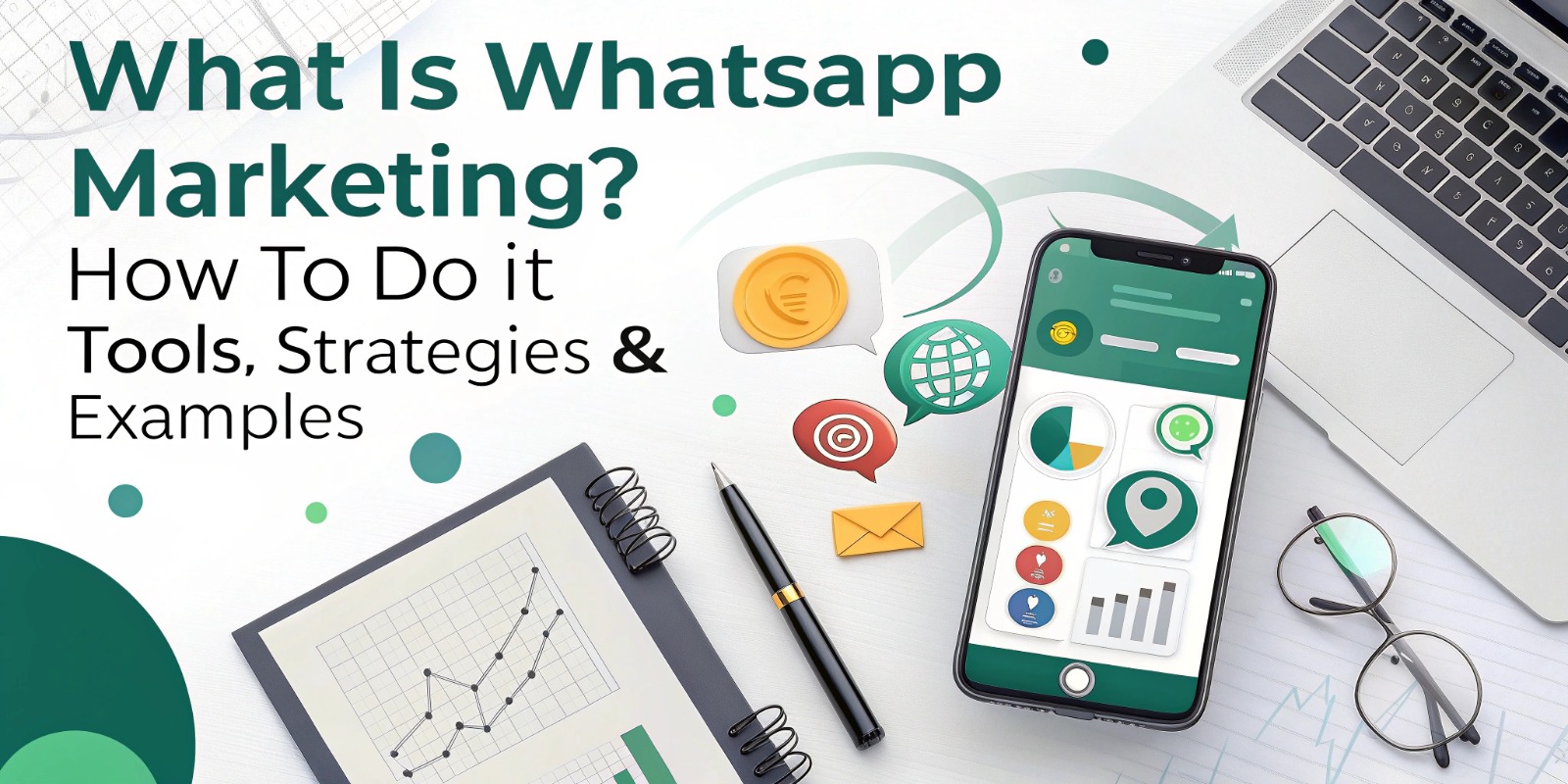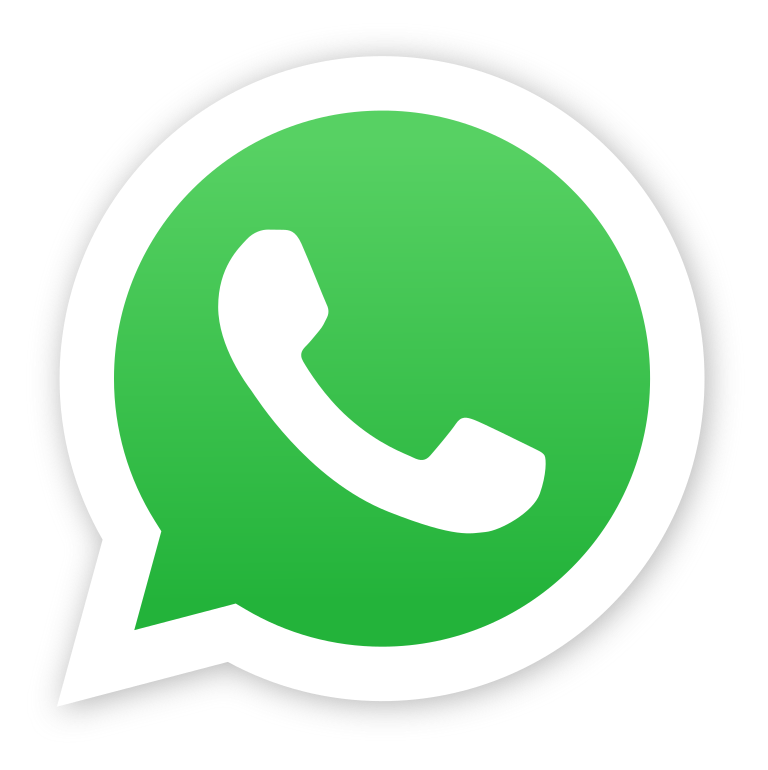Digital marketing has come a long way in the past ten years. In the early days, businesses mainly depended on websites, emails, and social media platforms like Facebook, Instagram, and Twitter to reach customers. These platforms were great for sharing updates, running ads, and connecting with people, but as more users flooded these channels, it became harder for businesses to stand out. People started getting tired of too many ads and notifications, and businesses began searching for more personal and direct ways to talk to their audience.
That's when messaging apps started gaining popularity as a marketing tool. Messaging apps allow businesses to have one-on-one conversations with customers in real time. Out of all these apps, WhatsApp has become one of the most popular and widely used platforms. Today, over 2 billion people worldwide use WhatsApp, making it a perfect place for businesses to connect with their customers quickly, personally, and efficiently.
In this blog, we'll cover everything you need to know about WhatsApp marketing — what it is, how it works, and why it matters. We'll also share practical strategies, popular tools you can use, and real-life examples to inspire you. Whether you run a small business or a large brand, this guide will help you get started!
In this blog, we'll explain:
- What WhatsApp marketing is
- How you can use it for your business
- Tools and strategies to make it effective
- Real-life examples and helpful tips
What is WhatsApp Marketing?
WhatsApp marketing is an innovative and straightforward way businesses connect with customers using WhatsApp's popular messaging app. It means using the app to send messages, images, videos, documents, and other types of content directly to a customer's phone number. Since WhatsApp is a personal messaging platform, businesses can build a closer and more personal relationship with their audience.
Many businesses use WhatsApp marketing to share important product or service updates. It's also a helpful tool for customer support, where people can quickly ask questions and get real-time answers. Besides that, companies can use WhatsApp to send order confirmations, shipping details, and payment receipts directly to the customer's phone, making the shopping experience smoother and hassle-free.
Businesses also use it to share special offers, discount coupons, and limited-time deals to encourage more sales. Additionally, it's a great platform to collect feedback, conduct surveys, and understand customer preferences.
What makes WhatsApp marketing so effective is its speed, simplicity, and personal touch. Messages are delivered instantly, and people check their WhatsApp regularly, making it a reliable way to reach your audience anytime, anywhere.
It can be used for:
- Product updates
- Customer support
- Order confirmations
- Promotional offers <!-- /wp:list-item -->
- Feedback and surveys
It's a fast, direct, and personal way to communicate with your audience.
How It Different from Other Marketing Channels
Unlike email marketing or social media ads, WhatsApp messages feel personal because they arrive directly in a person's private chat window. Here's how it stands out:
- Higher open rates — One of the most significant advantages of WhatsApp marketing is its impressive open rate. Over 98% of WhatsApp messages are opened by users, while email open rates are much lower, averaging around 20%. It means your message is far more likely to be seen and read quickly.
- Real-time communication — WhatsApp allows businesses to chat with customers instantly. Messages are delivered within seconds, and people usually reply fast since they check their WhatsApp often. It makes answering questions, solving problems, and sharing real-time updates easy, creating a smooth and fast customer experience.
- No complex algorithms — Unlike social media platforms, where posts might get lost because of changing algorithms, WhatsApp delivers your message straight to the person's chat inbox. There's no risk of it being hidden, delayed, or filtered. It ensures your customers always receive your messages directly and on time.
- Free and easy to use — One of the best things about WhatsApp Business is that it's free for small businesses. You don't need to pay for expensive tools or ads to get started. It's simple to set up, user-friendly, and perfect for directly connecting with your customers anytime.
🚀 New Batch Starting Soon!
Don't miss your chance to enroll now.
Many businesses today are turning to WhatsApp marketing because it offers several advantages that other platforms often can't match. Here's why it's becoming so popular:
- High open and response rates: WhatsApp messages have a very high open rate — over 98%. Most people check their WhatsApp several times daily, so your message will likely be seen and opened within minutes. Also, because it's a personal chat app, people are more likely to reply, making it easier to have honest conversations.
- Quick, two-way communication: Unlike email or ads, WhatsApp lets businesses and customers chat in real-time. You can quickly answer questions, share updates, and provide support, helping to improve customer satisfaction.
- Supports images, videos, and PDFs: WhatsApp isn't just for text messages. You can send product photos, promotional videos, price lists, catalogs, and more. It makes your messages more interesting and engaging.
- Cost-effective for small businesses: Setting up a WhatsApp Business account is free, and you can start promoting your products without considerable advertising costs.
- Build long-term relationships: By offering fast and friendly support, you can build trust and keep customers returning.
- Group chats and broadcast lists: These features let you simultaneously send messages to many people while keeping chats personal and organized.
How to Do WhatsApp Marketing
Let's look at how you can get started with WhatsApp marketing, step by step.
Setting Up a WhatsApp Business Account
Start by downloading the WhatsApp Business app, available for both Android and iPhone. This app is for businesses and includes helpful features like a business profile, automated messages, quick replies for common questions, and labels to manage and organize your chats and contacts easily.
Building a Contact List Ethically
Respecting people's privacy is important. Never buy phone numbers or message people without their permission. Instead, make your contact list honestly by adding opt-in forms on your website, inviting customers to join at checkout, or offering special discounts and freebies for signing up.
Creating Personalized and Engaging Messages
People enjoy friendly messages made just for them. Use the customer's name and share offers or updates based on their liking. Avoid sending boring, spam-like texts. A warm, personal message makes customers feel valued and increases their chances of responding.
Using Broadcast Lists and Groups
Broadcast lists let you send the same message to many people simultaneously, but each person receives it privately, like a personal chat. Groups are great for creating small communities, sharing updates, or running VIP programs where all group members can see and join the conversation.
Do's and Don'ts for Effective Engagement
Do's:
- Share helpful and valuable content.
- Be polite, professional, and friendly.
- Use emojis to make messages more engaging.
- Respond to customer queries quickly.
Don'ts:
- Don't spam people with nonstop sales messages.
- Don't add people to groups without their permission.
- Avoid sending messages at late hours.
- Never ignore replies from customers. Always engage and respond.
WhatsApp Marketing Strategy
A good strategy makes your marketing efforts more organized and successful.
Identifying Your Target Audience
To create effective WhatsApp marketing, you need to know your ideal customers. Think about their needs, interests, and preferences. What problems are they trying to solve, and how can your product or service help? Understanding this will help you send relevant and engaging messages, making them more likely to respond.
Setting Clear Marketing Goals
Before starting your WhatsApp marketing, it's essential to decide your goals. Do you want to increase sales, get more bookings, build customer loyalty, or collect feedback? Setting clear, measurable goals like "Gain 100 new contacts this month" or "Increase product inquiries by 30%" will help you stay focused and track your progress.
Content Planning
Decide what kind of content you'll share with your audience. You can send text messages for announcements or updates, images like product photos or promotions, videos for tutorials, unboxing, event highlights, and even a catalog where customers can browse products and place orders directly. Having a variety of content keeps things interesting!
Timing and Frequency of Messages
Be mindful of how often you message customers. Sending one to two promotional messages weekly is ideal to avoid overwhelming recipients. Always respond quickly to customer inquiries. Share important updates or alerts when needed, but prevent messaging too early in the morning or too late at night. Respect customers' time for better engagement.
Integrating WhatsApp with Other Marketing Channels
Make WhatsApp a part of your overall marketing strategy by connecting it with your website, Instagram, Facebook, or Google Ads. For example, add a "Click to WhatsApp" button on your website, share your WhatsApp number in your social media bio, or run Facebook ads with a "Send Message on WhatsApp" button to make it easy for customers to reach you.
Measuring Success
Track key metrics like message open rates, number of replies, and sales generated through WhatsApp to see how well your WhatsApp marketing is working. Also, monitor your contact list growth and gather customer feedback to gauge satisfaction. You can track these metrics manually or use WhatsApp marketing tools to make the process easier and more efficient.
WhatsApp Marketing Tools
In 2025, several tools can help businesses with WhatsApp marketing. These include the WhatsApp Business API for larger companies and tools like WATI, Zoko, and AiSensy, which offer features like automation, customer support, and analytics, making it easier to scale and manage WhatsApp campaigns effectively.
WhatsApp Business API
The WhatsApp Business API is made for medium to large businesses that need to send bulk messages, notifications, and automated replies. It requires approval and is a paid service. Key features include bulk messaging, chat automation, customizable message templates, and CRM integration to streamline customer interactions.
WATI
WATI is a tool built on the WhatsApp Business API that helps with customer support and marketing automation. Key features include auto-replies to respond quickly, multiple agent logins for team collaboration, message broadcasting to reach many customers, and an analytics dashboard to track performance and insights.
Zoko
Zoko is a tool that helps businesses handle orders, conversations, and promotions through WhatsApp. Key features include an order management system, CRM integration for better customer management, broadcast messaging to reach many people simultaneously and sending payment links directly through chat for easy transactions.
AiSensy
AiSensy is a widely used tool for businesses in India. It offers broadcast marketing campaigns to reach a large audience, chat automation to save time, and API access for easy integration with other systems. It also provides pre-approved message templates to streamline communication and ensure consistency.
Key Features to Look For
When choosing a WhatsApp marketing tool, ensure it has message scheduling to send at the right time, contact management for easy organization, and broadcast limits to control how many messages you send. Look for automation features and analytics/reports to track performance and improve your strategy.
How Tools Can Automate and Scale Marketing
When choosing a WhatsApp marketing tool, ensure it has message scheduling to send at the right time, contact management for easy organization, and broadcast limits to control how many messages you send. Look for automation features and analytics/reports to track performance and improve your strategy.
WhatsApp Marketing Course
Why Learning WhatsApp Marketing Matters in 2025
In 2025, WhatsApp marketing is more important than ever as businesses face increased online competition. Learning how to use it effectively helps you reach customers directly, improve service quality, and grow your business affordably. With WhatsApp, you can build stronger connections and drive sales without considerable marketing costs.
What to Expect in a Good Course
A quality WhatsApp marketing course should cover the basics of the WhatsApp Business app and API, guide you in creating effective strategies, teach you how to use automation tools, show you how to handle customer service professionally and help you measure and improve your campaign results.
Modules, Duration, and Practical Knowledge
Most WhatsApp marketing courses include 6–10 modules that cover key topics. You can expect 7–15 hours of video content, practical case studies, and live projects to apply your learning. Upon completion, you'll receive a certificate to showcase your new skills and knowledge.
Recommended WhatsApp Marketing Courses
For free courses, try HubSpot Academy for WhatsApp for Business Basics or explore YouTube tutorials by industry experts. For paid courses, check out Udemy's "WhatsApp Marketing Automation," Coursera's "Digital Marketing with Messaging Apps," or AiSensy Academy for in-depth training and advanced strategies in WhatsApp marketing.
WhatsApp Marketing Examples
1. Real-World Examples
Many businesses use WhatsApp smartly. Zomato sends order updates and special deals. Nykaa shares restock alerts and personalized product suggestions. Local cafes, salons, and small shops use it to send appointment reminders, discount coupons, and event invites, helping them stay connected and build loyal customer relationships.
2. Case Studies
A small T-shirt business made a WhatsApp group for loyal buyers, shared new designs and special offers, and boosted sales by 40%. An e-commerce brand used broadcast lists for flash sales and linked WhatsApp to its website, getting 70% better click rates than regular email marketing.
3. Lessons to Learn
For successful WhatsApp marketing, always keep your messages short, friendly, and valuable. Add images or videos to grab attention. Make sure to reply quickly to customer questions and be helpful. Lastly, track your results, like sales and replies, and keep improving your messages based on what works best.
Conclusion
In today's digital world, WhatsApp marketing has become one of the easiest, fastest, and most affordable ways for businesses to stay connected with their customers. It's a direct and personal platform where you can chat with people, share updates, and promote your products or services in a friendly, casual way. To quickly recap, WhatsApp marketing offers very high open rates. Almost everyone reads WhatsApp messages, unlike emails, which are often ignored. You can build your contact list ethically through opt-ins, like adding a sign-up form on your website or offering a discount for joining your WhatsApp list.
A good marketing strategy starts by knowing your audience, setting clear goals like boosting sales or growing your contact list, and sending applicable, engaging content at the right time. Helpful tools like WATI, Zoko, and AiSensy can automate replies, broadcast messages, and track performance to save time and effort.
Learning through online courses to sharpen your skills is also a brilliant idea. Many real businesses use WhatsApp to grow their sales and build loyal customers. Start small today — set up your business account, create a small contact list, and send your first friendly message!



